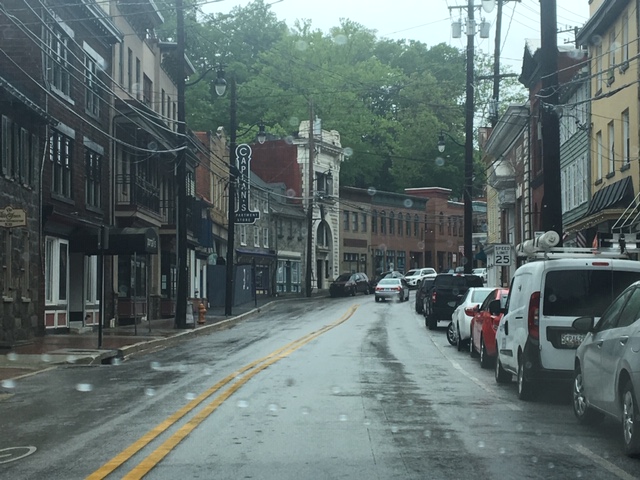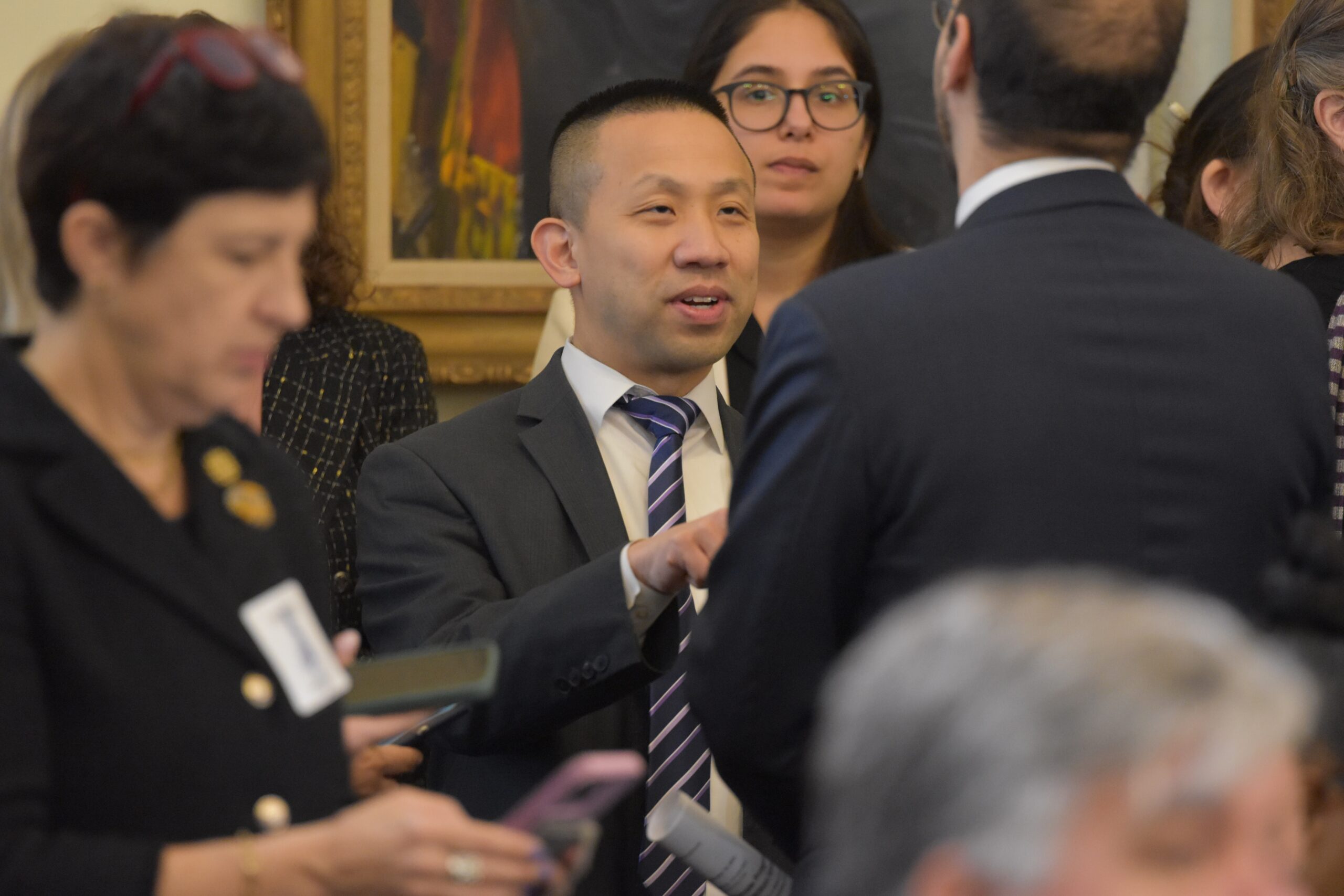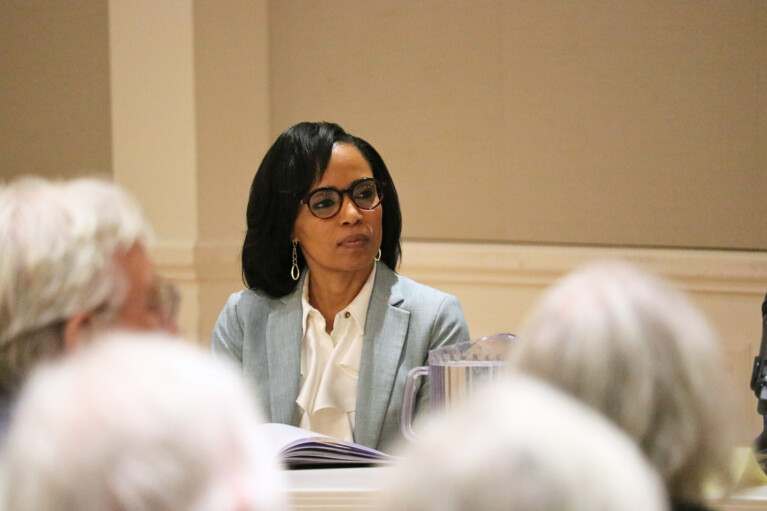Here Is a Capsule Look at 10 Bills Hogan Allowed to Become Law

By Friday afternoon, when his office announced which bills he’d veto and which bills he’d let become law without his signature, Gov. Lawrence J. Hogan Jr. (R) was well into the rituals of the holiday weekend, planting the ceremonial first umbrella on the beach in Ocean City and eating ice cream at a dairy in Berlin.
Fridays leading into a holiday weekend are the perfect time for politicians and governments to put out information when they don’t want to attract much scrutiny. Whether that was intentional on Hogan’s part is hard to say: The calendar dictates when a governor must make final decisions on legislation passed during the previous General Assembly session, and often enough, that deadline bumps up against Memorial Day weekend.
Beyond the eight bills Hogan vetoed [see related story], the media coverage on the dozens of measures Hogan allowed to become law have focused on three: A bill to ban polystyrene food containers in Maryland, a measure to create a Prescription Drug Affordability Board to curtail drug costs for state and local government employees, and legislation giving motorists the option of listing their gender as undesignated or non-binary on their drivers licenses.
Maryland’s health care advocates say the drug affordability board could become a national model – and could be expanded to include private sector workers if it’s successful for government employees. Maryland will join 11 other states and the District of Columbia in offering a third gender option on drivers licenses. And Maryland will become the first state to ban Styrofoam food containers – though several local governments around the country, including a handful in Maryland, have already taken that step.
“Awareness around the growing scope and implications of litter and marine pollution reached a new level in the last year, and it’s significant that Maryland’s elected officials swiftly translated that into action with this legislation, said Ashley Van Stone, executive director of the group Trash-Free Maryland. “A consistent ban statewide will ensure foam trash is not polluting our waterways and harming our wildlife and communities, and advances the tenor of our work to eliminate litter and waste throughout the state.”
The polystyrene ban was sponsored by Sen. Cheryl C. Kagan (D-Montgomery) and Del. Brooke E. Lierman (D-Baltimore City).
Hogan had well-chosen words for the eight bills he decided to veto, but he was silent on the bills he decided to let through without his signature. Earlier last week, he let a clean energy measure become law without signing it, but publicized his objections to it and explained his desire to improve upon it in next year’s legislative session.
Beyond these “Big Three” bills, dozens of other bills are taking effect without Hogan’s signature.
Here are snapshots of 10 of those bills:
— A bill sponsored by Sen. Cory V. McCray (D-Baltimore City) and Del. Pamela Queen (D-Montgomery) to expand food stamp benefits through the summer months to students who rely on free meals from their schools.
— A bill by Sen. Clarence K. Lam (D-Howard) and Del. Marc Korman (D-Montgomery) putting into statute Maryland’s membership in the regional Transportation and Climate Initiative, which is designed to reduce carbon emissions from the transportation sector. The Hogan administration had already entered Maryland into the regional alliance, but the legislation essentially solidifies the state’s membership.
— A bill by Lierman and Sen. Sarah K. Elfreth (D-Anne Arundel) providing funding for legal representation for students at state colleges and universities who believe campus sexual assault policies have been violated.
— Legislation by Sen. Jill P. Carter (D-Baltimore City) and Del. Jheanelle Wilkins (D-Montgomery) that makes permanent a temporary state program providing data and analysis of race-based traffic stops by police.
— A bill by Sen. Paul G. Pinsky (D-Prince George’s) laying out procedures for Election Day voter registration in the state. Voters last fall approved a ballot initiative permitting voters to register when they go to the polls on Election Day.
— A bill by Sen. Craig J. Zucker (D-Montgomery) and Del. Eric Ebersole (D-Howard) mandating that a full-time teacher and a parent of a public school student be appointed to the State Board of Education. Hogan vetoed a similar measure last year.
— A bill by Sen. Delores G. Kelley (D-Baltimore County) and Del. Shane M. Pendergrass (D-Howard) that prevents the state from accepting certain funding under Title X of the federal Public Health Service Act if the Title X program excludes family planning providers.
— A Pinsky bill altering certain aspects of the state’s election calendar, including making the candidate filing deadline 12 days earlier than it currently is.
— Flood legislation from Sen. Katie Fry Hester (D-Howard) and Del. Courtney Watson (D-Howard) that provides funding for communities hit by major flood events and also provides funding for flood preparation and mitigation programs.
— A local bill from the Baltimore County delegation enabling the County Council to impose impact fees on development projects.




 Creative Commons Attribution
Creative Commons Attribution